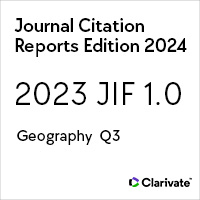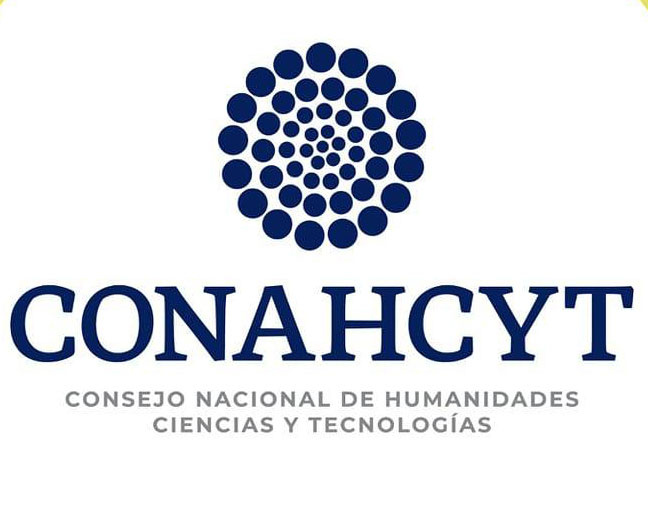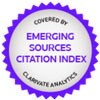Elasticities of substitution and functional separability of the maquiladora industry
Elasticidades de sustitución y separabilidad de los factores productivos de la industria
https://doi.org/10.21670/ref.2013.28.a07
Keywords:
Substitution elasticities, returns to scale, separability, input demand, maquiladoraAbstract
Previous studies about the demand of productive factors of the Maquiladora Industry have focused in the labor demand. Such literature has advanced in two directions: specifying dynamic models of labor demand; or deriving the demand of productive factors from production functions that assume constant returns to scale, functional separability or certain substitution patterns among them. In this paper we estimate a translog production function without imposing a priori these restrictions. Our objective is to determine whether there is evidence supporting those assumptions. In particular, we analyze the hypotheses of constant returns to scale, and the different forms of functional separability in a three inputs production function. We use data that combines annual time series (1990– 2006) with cross section of nine economic sectors of the Mexican maquiladora. We find no evidence supporting the assumptions that have been used in previous studies of factor demand. Specifically, we find evidence of decreasing returns to scale, and that the elasticities of substitution between the productive factors are all different. The estimated elasticity of substitution between labor and capital is below one; between labor and materials fluctuates between 1 and 1.5; whereas the elasticity of substitution between capital and materials is above 2.Resumen
Los estudios sobre la demanda de factores productivos en la industria maquiladora se han concentrado en la demanda de mano de obra. Esta literatura ha avanzado en dos sentidos: especificando modelos dinámicos de demanda laboral; o bien, obteniendo las demandas derivadas a partir de funciones de producción que suponen rendimientos constantes a escala, separabilidad entre los factores productivos o ciertos patrones de sustitución entre ellos. En este artículo estimamos una función de producción translog sin imponer esas restricciones a priori, para determinar si la evidencia brinda sustento para tales supuestos. En particular, analizamos las hipótesis de rendimientos constantes a escala; y las diferentes formas que puede adoptar la separabilidad en una función de producción con tres factores productivos. Empleamos datos que combinan series de tiempo anuales (1990–2006) con corte transversal de nueve sectores económicos de la maquiladora Mexicana. Encontramos que no hay evidencia que soporte los supuestos que se han empleado en los estudios de demandas factoriales con fundamento en la especificación de la tecnología. En particular, encontramos evidencia de rendimientos decrecientes a escala y de que las elasticidades de sustitución entre los factores productivos son todas diferentes. La elasticidad de sustitución estimada entre la mano de obra y el capital es menor a 1; entre la mano de obra y los materiales varía entre 1 y 1.5; mientras que entre el capital y los materiales es mayor a 2.References
Austen-Smith, David y Jeffrey Banks (2000), Positive Political Theory I: Collective Preference, Michigan University Press, Ann Arbor.
Bergman, Marcelo y Lawrence Whitehead (2009), Criminalty, Public Security and the Challenges to Democracy in Latin America, Hellen Kellogg Institute for International Studies, University of Notre Dame Press. Notre Dame.
Bovens, Mark (2010), “Two Concepts of Accountability: Accountability as a Virtue and as a Mechanism”, West European Politics, vol. 33, núm. 5, pp. 946-967. DOI: https://doi.org/10.1080/01402382.2010.486119
Chambers, Simone (2003), “Deliberate Democratic Theory”, Annual Review of Political Science, vol. 5, pp. 307-326. DOI: https://doi.org/10.1146/annurev.polisci.6.121901.085538
Cheibub, José Antonio (2007), Presidentialism, Parliamentarism, and Democracy Cambridge University Press, Cambridge. DOI: https://doi.org/10.1017/CBO9780511813344
Christiano, Thomas (2004), “The Authority of Democracy”, Journal of Political Philosophy, vol. 12, núm. 3, pp. 266-290. DOI: https://doi.org/10.1111/j.1467-9760.2004.00200.x
Christiano, Thomas (1996), The Rule of the Many: Fundamental Issues in Democratic Theory, Westview Press, Boulder Colorado, Estados Unidos.
Collier, David y Steven Levitsky (1997), “Democracies with Adjectives: Conceptual Innovation in Comparative Research”, World Politics, vol. 49, núm. 3, pp. 430- 451. DOI: https://doi.org/10.1353/wp.1997.0009
Collier, David, Fernando Daniel Hidalgo y Andra Olivia Maciuceanu (2006), Journal of Political Ideologies, vol. 11, núm. 3, pp. 211-246. DOI: https://doi.org/10.1080/13569310600923782
Coppedge, Michael (2007), “Thickening thin Concepts: Issues in Large-N Data Generation”, en G. Munck (ed.), Regimes and Democracy in Latin America: Theories and Methods, Oxford University Press, Oxford.
Croissant, Aurel y Wolfang Merkel (2004), “Introduction. Democratization in the Early Twentieth-First Century”, Democratization, vol. 11, núm. 5, pp. 1-9. DOI: https://doi.org/10.1080/13510340412331304570
Dahl, Robert (1989), Democracy and its Critics, Yale University Press, New Heaven.
Dahl, Robert (1971), Poliarchy: Participation and Opposition, Yale University Press, New Heaven.
Diamond, Larry (1999), Developing Democracy: Towards Consolidation, John Hopkins University Press, Baltimore.
Dryzek, John, Bonnie Honig y Anne Phillips (2006), “Introduction”, en J. Dryzek, B. Honig y A. Phillips (coords.), Oxford Handbook of Political Theory, Oxford University Press, Oxford.
Ferejohn John y Pasquale Pasquino (2003), “Rule of Democracy and Rule of Law”, en J. M. Maravall y A. Przeworski (eds.), Democracy and The Rule of Law, Cambridge University Press, Cambridge. DOI: https://doi.org/10.1017/CBO9780511610066.011
Fung, Archon (2006), “Varieties of Participation in Complex Governance”, Public Administration Review, núm. 66, pp. 66-75. DOI: https://doi.org/10.1111/j.1540-6210.2006.00667.x
Gallagher, Michael y Paul Mitchell (eds.), (2005). The Politics of Electoral Systems, DOI: https://doi.org/10.1093/0199257566.001.0001
Oxford University Press, Oxford.
Gerring, John y Strom Thacker (2008), A Centripetal Theory of Democratic Governance, Cambridge University Press, Cambridge. DOI: https://doi.org/10.1017/CBO9780511756054
Habermas, Jürgen (1998), Facticidad y validez, Trotta, Madrid.
Held, David (2006), Models of Democracy, Stanford University Press, Stanford.
Kitschelt, Herbert y Steven Wilkinson (2007), “Citizen-Politician Linkages: An Introduction”, en Herbert Kitschelt y Steven Wilkinson (eds.), Patrons, Clientes, and Policies: Patterns of Democratic Accountability and Political Competition, Cambridge University Press, Cambridge. DOI: https://doi.org/10.1017/CBO9780511585869
Landmann, Todd (2009), Evaluar la calidad de la democracia: una introducción al marco de idea Internacional, (en colaboración con David Betham, Edzia Carvalho y Stuart Weir), Instituto Internacional para la Democracia y la Asistencia Electoral, Estocolmo, Suecia.
Levine, Daniel y José Enrique Molina (2007), “La calidad de la democracia en América Latina: una visión comparada”, América Latina Hoy, núm. 45, pp. 17-46. DOI: https://doi.org/10.14201/alh.2427
Levitsky, Steven y Lucan A. Way (2010), Competitive Authoritarianism: Hybrid Regimes After the Cold War, Cambridge University Press, Cambridge. DOI: https://doi.org/10.1017/CBO9780511781353
Lijphart, Arend (2000), Modelos de democracia, Ariel, Barcelona.
Linz, Juan (1994), “Presidential or Parliamentary Democracy: Does it Makes a Difference?”, en Juan J. Linz y Arturo Valenzuela (eds.), The Failure of Presidential Democracy, The John Hopkins University Press, Baltimore.
Linz, Juan y Alfred Stepan (1996), Problems of Democratic Transition and Consolidation, The John Hopkins University Press, Baltimore. DOI: https://doi.org/10.56021/9780801851575
Mainwaring, Scott y Christopher Welna (eds.) (2003), Democratic Accountability in Latin America, Oxford University Press, Oxford. DOI: https://doi.org/10.1093/0199256373.001.0001
Mainwaring, Scott, Timothy Scully y Jorge Vargas-Cullel (2010), “Measuring Success in Democratic Governance”, en Scott Mainwaring y Timothy Scully (eds.), Democratic Governance in Latin America, Stanford University Press, Stanford.
Mainwaring, Scott, Daniel Brinks y Aníbal Pérez-Liñán (2007), “Classifying Political Regimes in Latin America, 1945-2004”, en G. Munck (ed.), Regimes and Democracy in Latin America: Theories and Methods, Oxford University Press Oxford.
Mainwaring, Scott y Aníbal Pérez-Liñan (2008), “Regimen Legacies and Democratization: Explaining Variance in the Level of Democracy in Latin America, 1978-2004”, documento de trabajo, núm. 354, The Helen Kellog Institute for International Studies.
Manin, Bernard (1997), The Principles of Representative Government, Cambridge University Press, Cambridge. DOI: https://doi.org/10.1017/CBO9780511659935
Manin, Bernard, Adam Prezeworski y Susan Stokes (1999), “Introduction”, en Adam Przeworski, Susan Stokes y Bernard Manin (eds.), Democracy, Accountability and Representation, Cambridge University Press, Cambridge. DOI: https://doi.org/10.1017/CBO9781139175104
Maravall, José María y Adam Przeworski (eds.) (2003), Democracy and the Rule of Law, Cambridge University Press, Cambridge. DOI: https://doi.org/10.1017/CBO9780511610066
Mazzuca, Sebastian L. (2007), “Reconceptualizing Democratization: Access to Power Versus Excercise of Power”, en G. Munck (ed.), Regimes and Democracy in Latin America: Theories and Methods, Oxford University Press, Oxford.
Méndez, Juan E., Paulo Sergio Pinheiro y Guillermo O’Donnell (1999). The (Un) rule of Law & The Underpriviliged in Latin America, Hellen Kellogg Institute for International Studies, University of Notre Dame Press, Notre Dame.
Morlino, Leonardo (2005), Democracias y democratizaciones, cepcom, México.
Morlino, Leonardo (2011), Changes for Democracy: Actors, Structures, Process, Oxford University Press, Oxford.
Munck, Gerardo (2004), “Democratic Politics in Latin America: New Debates and Research Frontiers”, Annual Review of Political Science, núm. 7, pp. 437-462. DOI: https://doi.org/10.1146/annurev.polisci.7.012003.104725
Munck, Gerardo (2006), “Drawing Boundaries: How to Craft Intermediate Regime Categories”, en A. Schedler (ed.), Electoral Authoritarianism: The Dynamics of Unfree Competition, Lynne Reiner, Boulder Colorado. DOI: https://doi.org/10.1515/9781685857479-004
Munck, Gerardo (2007), “The Study of Politics and Democracy: Touchstones of a Research Agenda”, en G. Munck (ed.), Regimes and Democracy in Latin America: Theories and Methods, Oxford University Press, Oxford.
Munck, Gerardo (2011), “Los estándares de la democracia: hacia una formulación de la cuestión democrática en América Latina”, Journal of Democracy en Español, vol. 3, pp. 22-41.
Munck, Gerardo y Jay Verkuilen (2002), “Conceptualizing & Measuring Democracy: Evaluation Alternative Indices”, Comparative Political Studies, vol. 35, núm. 1, pp. 5-34. DOI: https://doi.org/10.1177/001041400203500101
Nolhen, Dieter (2004), Sistemas electorales y partidos políticos, Fondo de Cultura Económica, México.
O’Donnell, Guillermo (2004), “Human Development, Human Rights, and Democracy”, en Guillermo O’Donnell, Jorge Vargas-Cullel y Osvaldo Iazzetta (eds.), The Quality of Democracy: Theory and Applications, Hellen Kellogg Institute for International Studies, University of Notre Dame Press, Notre Dame.
O’Donnell, Guillermo, Jorge Vargas-Cullel y Osvaldo Iazzetta (eds.) (2004), The Quality of Democracy: Theory and Applications, University of Notre Dame Press, Notre Dame.
Plotke, David (1997), “Representation is Democracy”, Constellations, núm. 4, pp. 19-34. DOI: https://doi.org/10.1111/1467-8675.00033
PNUD (2004), La democracia en América Latina: hacia una democracia de ciudadanas y ciudadanos, pnud, Buenos Aires.
PNUD(2010), Nuestra democracia, pnud, Organización de los Estados Americanos, Fondo de Cultura Económica, México.
Powell, Bingham G. Jr. (2004), “Political Representation in Comparative Politics”, Annual Review of Political Science, núm. 7, pp. 273-96. DOI: https://doi.org/10.50505/nlmtest4
Powell, Bingham G. Jr. (2000), Elections as Instruments of Democracy: Mayoritarian and Proportional Visions, Yale University Press, Yale.
Przeworski, Adam (1991), Democracy and the Market: Political and Economic Reforms in Eastern Europe and Latin America, Cambridge University Press, Cambridge. DOI: https://doi.org/10.1017/CBO9781139172493
Przeworski, Adam (2010), Democracy & the Limits of Self-Government, Cambridge University Press, Cambridge. DOI: https://doi.org/10.1017/CBO9780511778490
Rawls, John (1999), A Theory of Justice, Belknap Harvard University Press, Harvard.
Riker, William (1982), Liberalism Against Populism, W. H. Freeman, San Francisco.
Sartori, Giovanni (1970), “Concept Misformation in Comparative Politics”, The American Political Science Review, vol. 64, núm. 4, pp. 1033-1053. DOI: https://doi.org/10.2307/1958356
Schedler, Andreas (2006), “The Logic of Electoral Authoritarianism”, en A. Schedler (ed.), Electoral Authoritarianism: The Dynamics of Unfree Competition, Lynne Reiner, Boulder Colorado. DOI: https://doi.org/10.1515/9781685857479
Schumpeter, Joseph (1971), Capitalism, Socialism and Democracy, Harper Perennial, Nueva York [1950, 3a. edición].
Shugart, Matthew S. y Scott Mainwaring (eds.) (1997), Presidentialism and Democracy in Latin America, Cambridge University Press, Cambridge. DOI: https://doi.org/10.1017/CBO9781139174800.002
Smith, Graham (2009), Democratic Innovations: Designing Institutions for Citizen Participation, Cambridge University Press, Cambridge. DOI: https://doi.org/10.1017/CBO9780511609848
Urbinati, Nadia y Mark Warren (2008), “The Concept of Representation in Contemporary Democratic Theory”, Annual Review of Political Science, vol. 11, pp. 387-412. DOI: https://doi.org/10.1146/annurev.polisci.11.053006.190533
Young, Iris Marion (2000), Inclusion and Democracy, Oxford University Press, Oxford.
Zakaria, Fareed (2003), The Future of Freedom: Illiberal Democracy at Home & Abroad, W.W. Norton & Company, Nueva York































